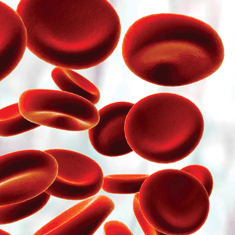
Iron deficiency is common in our society, especially among women and long distance runners.
Oxygen is transported around the body via the Haem (iron) molecule.
Without adequate iron the body can not carry enough oxygen to create energy, hence the most common symptom of iron deficiency is fatigue. Next on the list of symptoms is breathlessness and a rapid heart rate – especially when under exertion, for example feeling very breathless when walking up a flight of stairs, even though you are reasonably fit. This “hypoxia” or lack of oxygen happens as there is not enough iron for the oxygen to attach to, so you have less oxygen available in the blood stream.
Iron deficiency symptoms are:
- Fatigue
- Breathlessness and subsequent rapid heart rate
- Headaches
- Low stamina
- Restless legs at night
- Frequent infections – reduced immune function
- Dizziness or light-headedness
- Cold hands and feet
- Inflammation or soreness of your tongue
- Brittle nails
- Unusual cravings for strange things: ice, dirt or starch (called Pica)
- Poor appetite, especially in infants and children with iron deficiency anemia
So what causes low iron ?
1. Poor absorption – this maybe due to low stomach acid, parasites, medications, vitamin c deficiency, poor gut function, excess coffee and sugar
2. Blood loss – heavy periods, fibroids, internal bleeding – stomach ulcer, bleeding in colon.
3. Haemolysis – rupture or destruction of red blood cells
- autoimmune and genetic factors – inability to absorb B12, MTHFR polymorphisms, folate deficiency,
- foot strike haemolysis – this is major issue for long distance runners
4. Lack of iron rich foods in diet – vegetarian and vegan diets, avoiding red meat, poor quality iron supplements
5. Body can’t use the iron – elevated level of heavy metals, mineral imbalances – that complete with iron for absorption.
How do you test ?
A simple blood test, called Iron studies, can check your levels of both stored and circulating iron. I strongly advise that if you are concerned about you iron levels that you have this done. You can do this with a GP or any qualified health care practitioner such as a Nutritionist or Naturopath.
I always test my clients before prescribing an iron supplement, as to much iron can also cause long term health problems.
I also advise that you have your iron checked before undertaking any form of endurance exercise such as a marathon or triathlon as your iron requirements are much higher for this level of training, especially for menstruating women. It is also important to test if you are planning a pregnancy, or breastfeeding as this greatly increases your need for iron.

